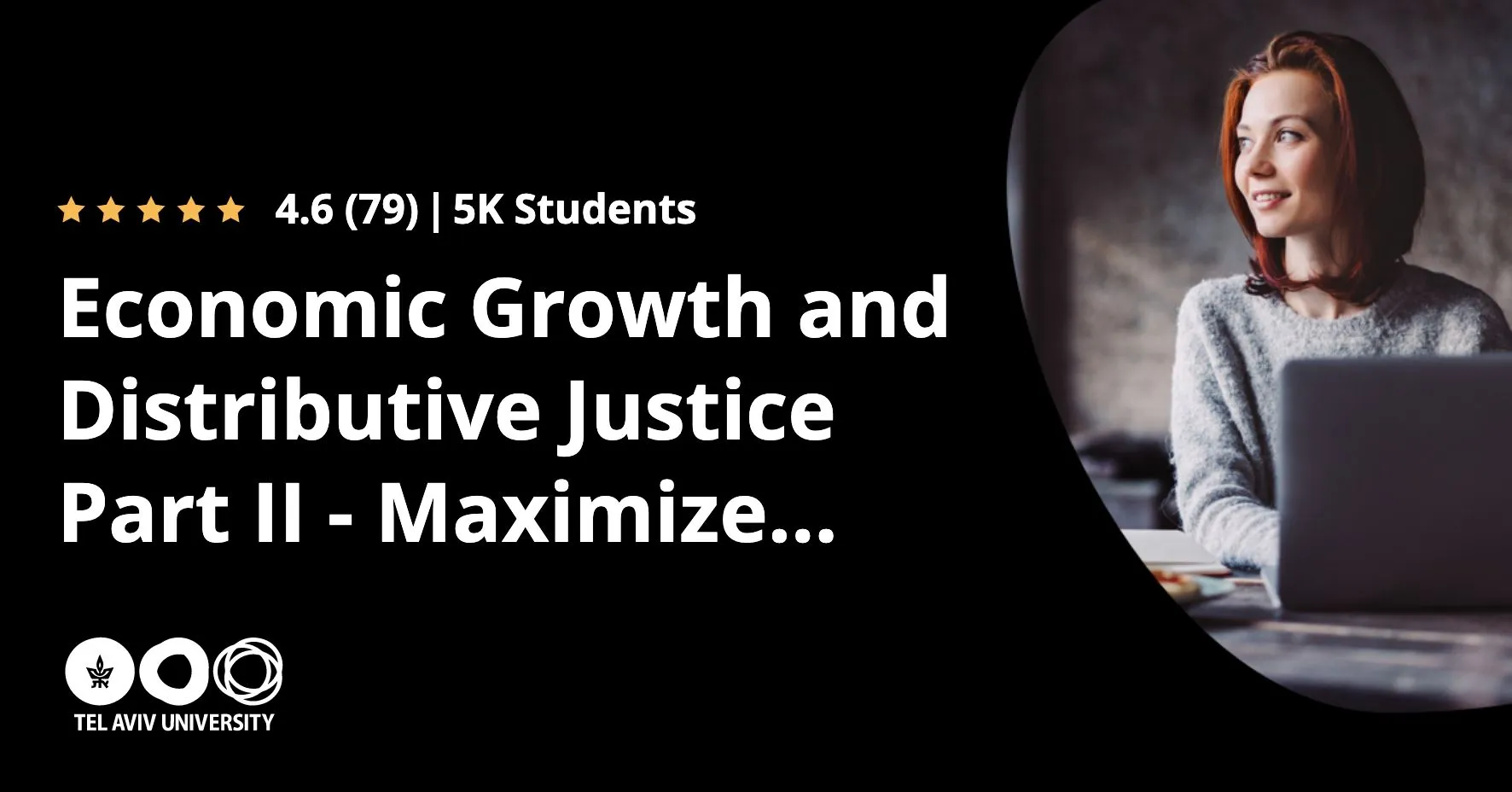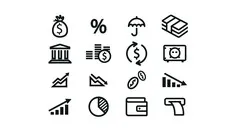
Economic Growth and Distributive Justice - Maximize Social Wellbeing 
This course examines the role of the state in maximizing social wellbeing through economic growth and distributive justice. It builds on the concepts explored in "Economic Growth and Distributive Justice - The Role of the State" to further explore the implications of economic growth and distributive justice. ▼
ADVERTISEMENT
Course Feature
![]() Cost:
Cost:
Free
![]() Provider:
Provider:
Coursera
![]() Certificate:
Certificate:
No Information
![]() Language:
Language:
English
![]() Start Date:
Start Date:
Self Paced
Course Overview
❗The content presented here is sourced directly from Coursera platform. For comprehensive course details, including enrollment information, simply click on the 'Go to class' link on our website.
Updated in [March 06th, 2023]
This course provides an overview of economic growth and distributive justice, with the aim of maximizing social wellbeing. Students will gain a better understanding of economic issues presented in the media, and will be able to form an informed opinion on the strengths and weaknesses of presented social economic policies. The course will also cover topics such as defining and measuring inequality and poverty, understanding the connection between inequality (income, wealth) and economic growth, and explaining the foundations of economic growth. Finally, students will be able to design a tax and transfer system to maximize the happiness of individuals.
[Applications]
The application of this course can be seen in the development of economic policies that promote social wellbeing. Students can use the knowledge gained from this course to analyze the strengths and weaknesses of existing economic policies and suggest improvements. Additionally, students can use the concepts learned to design a tax and transfer system that maximizes the happiness of individuals. Finally, students can use the knowledge gained to better understand economic issues presented in the media and form an informed opinion on them.
[Career Paths]
1. Economic Policy Analyst: Economic policy analysts are responsible for researching, analyzing, and evaluating economic policies and their effects on the economy. They provide advice to government and business leaders on how to best implement economic policies. They also monitor the economic environment and provide forecasts of economic trends. As the global economy continues to evolve, the demand for economic policy analysts is expected to increase.
2. Social Impact Analyst: Social impact analysts are responsible for researching, analyzing, and evaluating the social and economic impacts of policies and programs. They provide advice to government and business leaders on how to best implement policies and programs that maximize social wellbeing. As the global economy continues to evolve, the demand for social impact analysts is expected to increase.
3. Economic Development Specialist: Economic development specialists are responsible for researching, analyzing, and evaluating economic development policies and their effects on the economy. They provide advice to government and business leaders on how to best implement economic development policies. They also monitor the economic environment and provide forecasts of economic trends. As the global economy continues to evolve, the demand for economic development specialists is expected to increase.
4. Social Equity Consultant: Social equity consultants are responsible for researching, analyzing, and evaluating the social and economic impacts of policies and programs. They provide advice to government and business leaders on how to best implement policies and programs that promote social equity. As the global economy continues to evolve, the demand for social equity consultants is expected to increase.
[Education Paths]
1. Bachelor of Science in Economics: This degree provides a comprehensive understanding of economic theory and its application to the real world. Students will learn about the principles of microeconomics, macroeconomics, international economics, and public finance. They will also gain an understanding of economic history, economic development, and economic policy. This degree is ideal for those interested in pursuing a career in economics, finance, or public policy.
2. Master of Science in Economics: This degree provides a more in-depth understanding of economic theory and its application to the real world. Students will learn about the principles of microeconomics, macroeconomics, international economics, and public finance. They will also gain an understanding of economic history, economic development, and economic policy. This degree is ideal for those interested in pursuing a career in economics, finance, or public policy.
3. Doctor of Philosophy in Economics: This degree provides an advanced understanding of economic theory and its application to the real world. Students will learn about the principles of microeconomics, macroeconomics, international economics, and public finance. They will also gain an understanding of economic history, economic development, and economic policy. This degree is ideal for those interested in pursuing a career in economics, finance, or public policy.
4. Master of Public Policy: This degree provides an understanding of public policy and its application to the real world. Students will learn about the principles of public policy, public administration, and public finance. They will also gain an understanding of economic history, economic development, and economic policy. This degree is ideal for those interested in pursuing a career in public policy, public administration, or public finance.
Course Provider

Provider Coursera's Stats at AZClass
Economic Growth and Distributive Justice - Maximize Social Wellbeing explores the role of the state in maximizing social well-being through economic growth and distributive justice. It builds on the concepts explored in "Economic Growth and Distributive Justice - The Role of the State" to explore the implications of economic growth and distributive justice further. In the process, you will gain a better understanding of economic issues reported in the media and form an informed opinion on the strengths and weaknesses of proposed socioeconomic policies Define and measure inequality and poverty, define inequality (income, wealth) and link between economic growth.
Discussion and Reviews
0.0 (Based on 0 reviews)
Explore Similar Online Courses

ISTQB Certified Tester Foundation Level Training (CTFL)

Epidemics

Python for Informatics: Exploring Information

Social Network Analysis

Introduction to Systematic Review and Meta-Analysis

The Analytics Edge

DCO042 - Python For Informatics

Causal Diagrams: Draw Your Assumptions Before Your Conclusions

Whole genome sequencing of bacterial genomes - tools and applications

Econ 101: The Complete Intro to Economics For Beginners

Economics: Elasticity and its Business Aspect on Pricing


Start your review of Economic Growth and Distributive Justice - Maximize Social Wellbeing